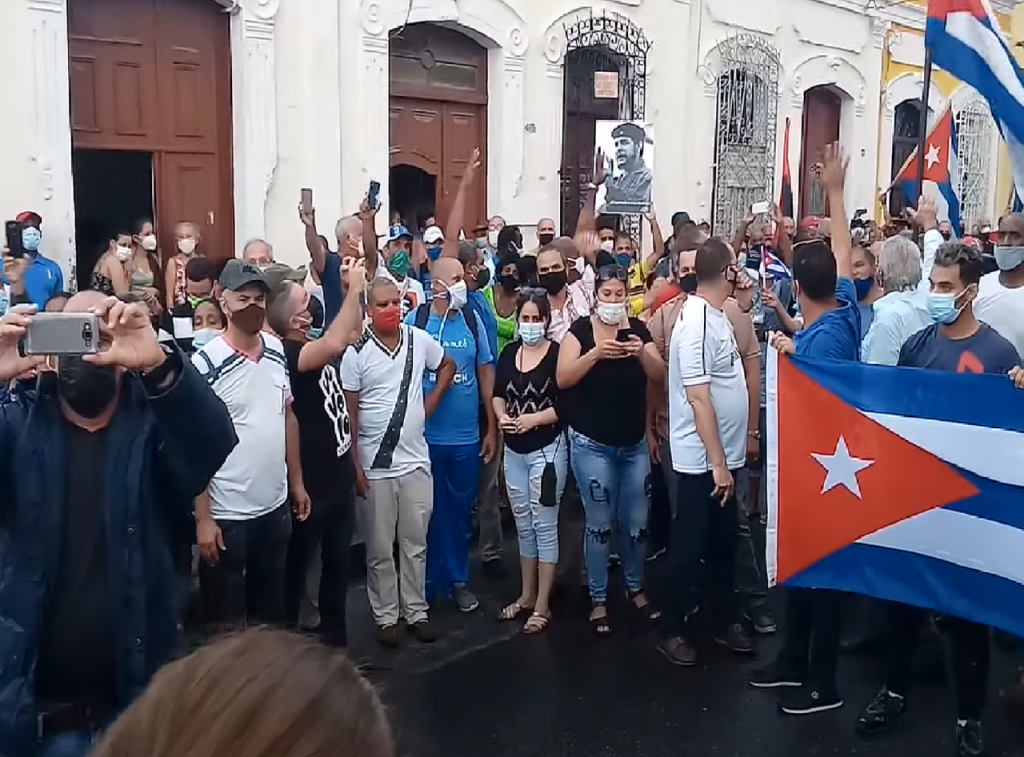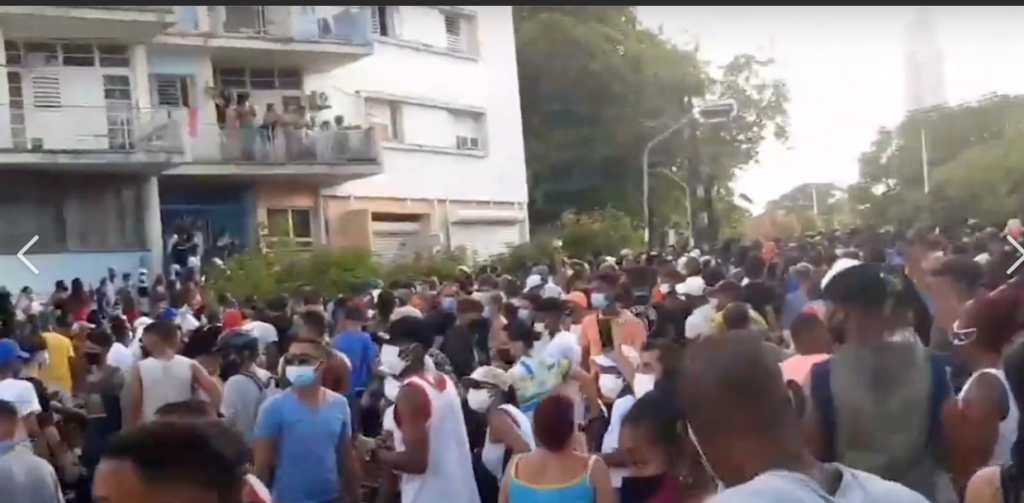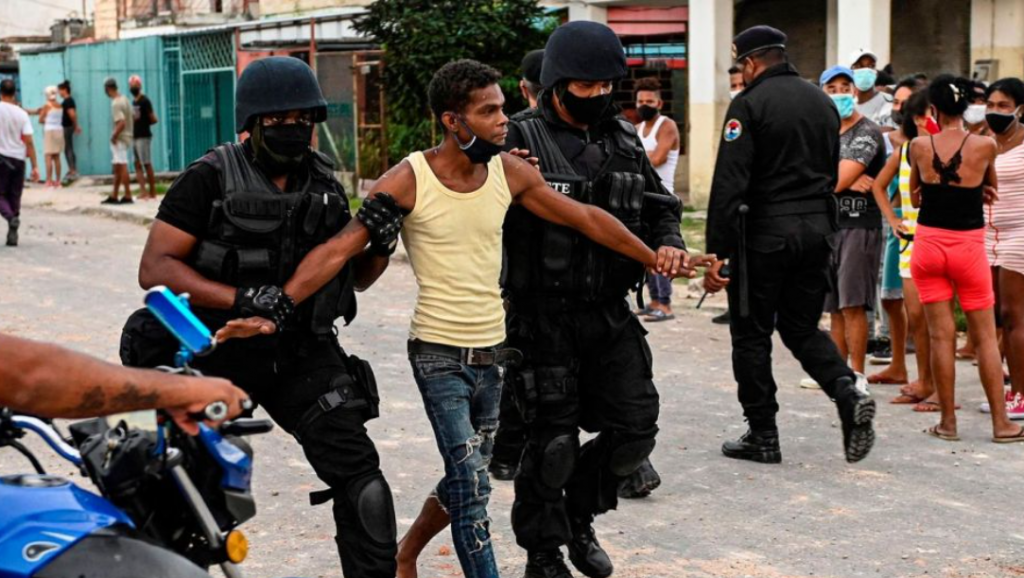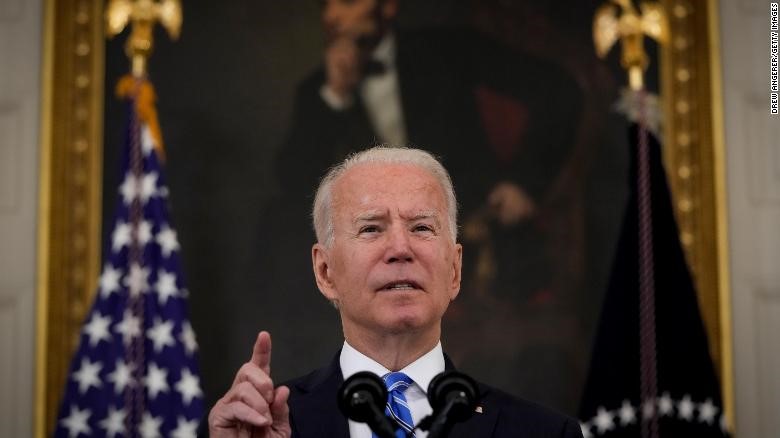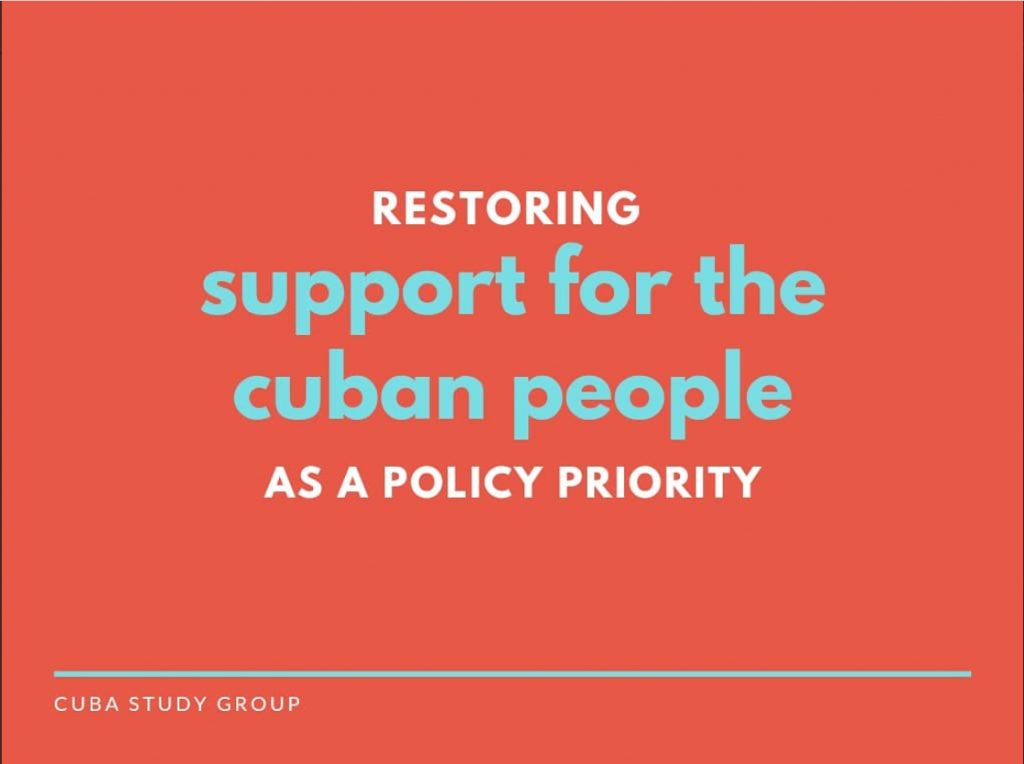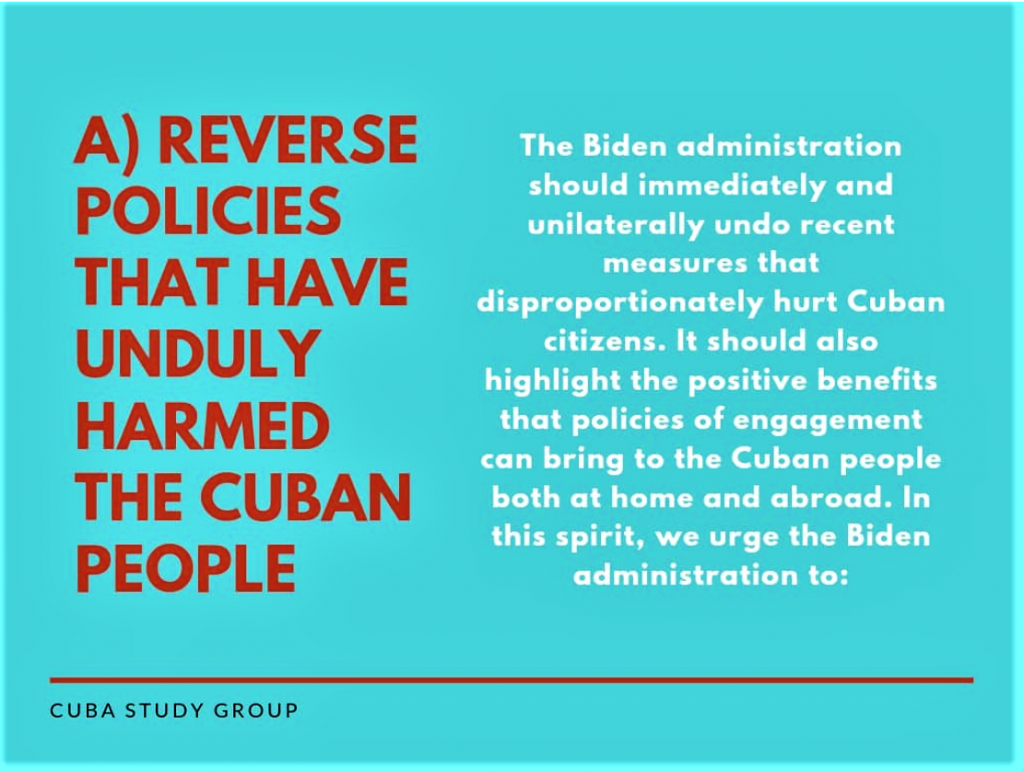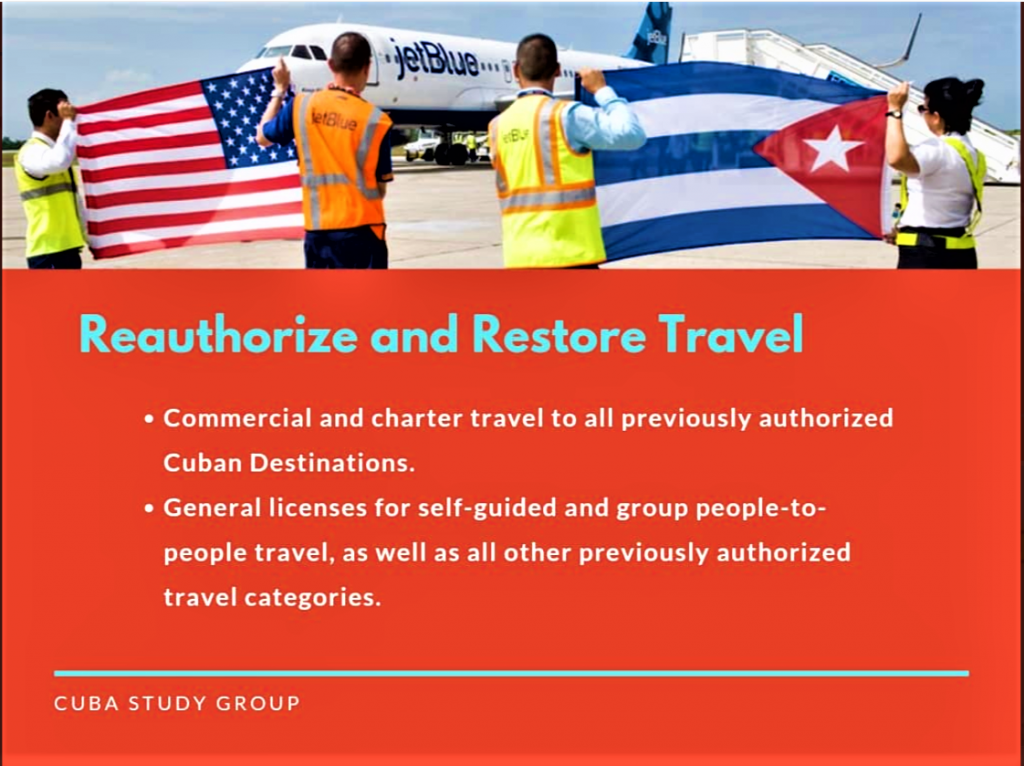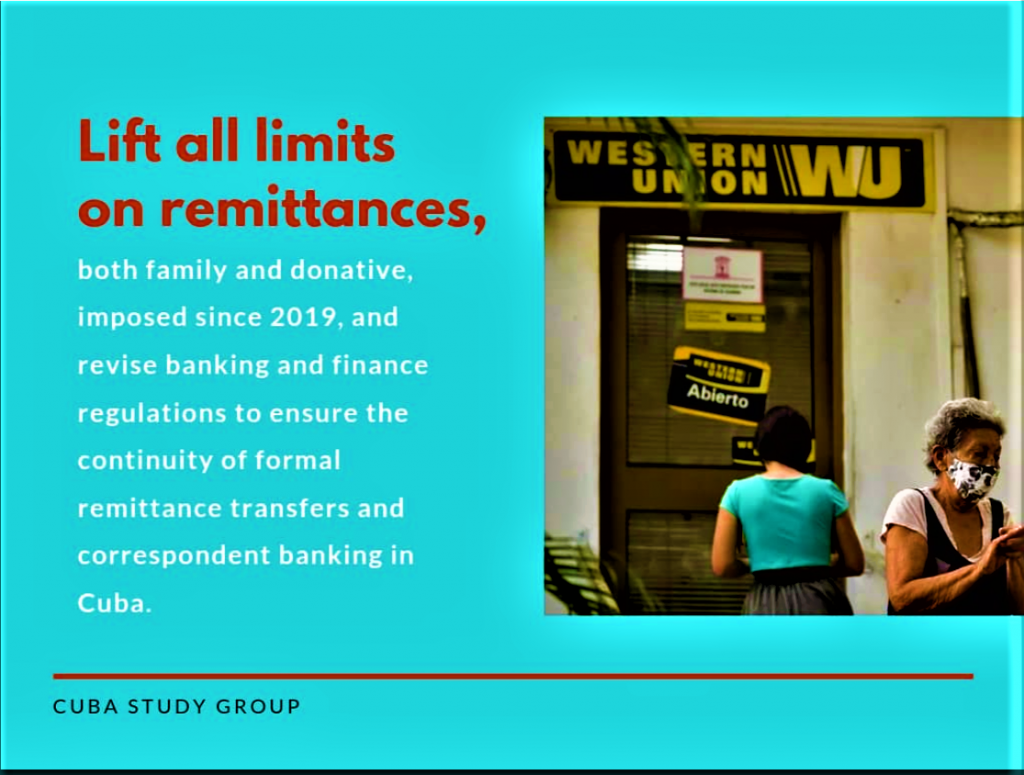
Cuba Study Group, October 28, 2021
Manuel Cuesta Morúa
Manuel Cuesta Morúa
Original Article: A “Third Way” Cuba Policy?
As noted in the introduction written by the Council on International Relations to Charles A. Kupchan’s book How Enemies Become Friends: The Sources of Stable Peace, in his 2008 inaugural address, Barack Obama promised nations “on the wrong side of history” that the U.S. would “extend a hand if they were willing to open their fists.”
Thus began an intellectual presidency, which certainly constitutes a strategic presidency. With its impressive historical documentation, Kupchan’s book provided Obama with a set of assumptions and theses that helped guide his policy towards Cuba.
Two assumptions in this book are worth summarizing. The first is that the stability of international relations is not decided by the type of regime a country has. The second is that economic relations are not as important as diplomacy when reducing tensions and seeking geopolitical accommodations with countries in conflict.
Obama’s policy towards Cuba was designed from these two assumptions. That a policy of unilateral concessions appeased the enemy, and that a strong investment in a friendly narrative, respect for sovereignty, and offers of cooperation would be more productive to achieve the goals of democratization, which Obama left in the most effective hands: that of the Cubans.
Isolation, combined with a policy of harassment and attrition, had not led to the stated goal of U.S. foreign policy toward the Island. This was the strongest argument against the critics of a policy shift that began with the exchange of prisoners, the removal of Cuba from the state sponsors of terrorism list, and the reestablishment of diplomatic relations.
To be fair, Obama actually modified his message, bringing it closer to Kupchan’s intellectual vision. He did not wait for the Cuban government to open its fist, instead introducing changes without the latter modifying its internal and external policy one iota.
In my view, and in the case of Cuba, the Obama policy’s greatest strategic success was to overwhelm the Cuban government on three fundamental levels: in that of its intentions, in that of its will to change, and in that of its language. Its impact on Cuban society has been irreversible.
The policy that preceded it lacked vision; confident that the harsh exercise of power would put an end to the regime. For 62 years, the Cuban government has been ostensibly on the verge of crumbling every four years. Obama’s policy focused on the medium and long term, and for that very reason it was strategic.
Did he fail? No. Although the type of regime does matter in any conception of foreign policy—a necessary correction to Kupchan’s postulates—a consequence perhaps not foreseen by the author, but which I assume was intuited by Obama, is that such a policy could put an end both rhetorically and practically to the identification and perception of the Cuban people and government as enemies of the United States. If the Cuban government continued (continues) to place itself in the convenient role of the enemy, this was no longer true with its people. And this is the most important result in terms of the US’s strategic goals, which not even the return to tough policy under Donald Trump could reinstate: the possibility of masking the conflict between the Cuban state and Cuban society behind the conflict between countries reached its limit with this formulation of foreign policy. Cuba opened up, and society took the lead.
The hard exercise of power continues with the logic inherited from the times of John F. Kennedy: instant democracy, hence the idea of restoring the past, and the United States playing a leading role in this transcript. Quid pro quo demands on Obama’s policy are born out of this logic, just as his policy sought to break with it. Obama inaugurated another era. Cubans were the ones who must advance the changes, and the United States can only be there for what it can and should do: to assist and support the process. The pace of change depends on factors that the United States cannot and should not try to control. There are constraints that the North American power must abide by based on the structural limitations of its system; this is what the hard-liners recognize to their chagrin every four years. After every electoral cycle, they always conclude that its up to the Cubans. They see abandonment “a lo Kennedy” when in reality it is the best invitation to assume control of our destiny.
Obama’s approach recognized that quid pro quo policies as a diplomatic game or foreign policy go beyond the limits imposed by a given time period, especially when it comes to regime change. He later demonstrated this with his policy towards the Arab Spring, mainly in Egypt. However, hardliners demand results within a fixed period from a policy that was repeatedly repurposed over time.
It is on this enduring and far-reaching foundation, which was put to the test here in July, that the Joe Biden administration could and should build a revised “third way” with Cuba, with an approach that connects its foreign policy with the nature of governing regimes. The Cuban government is an actor and factor of regional destabilization, with new formulas that can be confused with the mechanisms of democracies and at the same time uses them. Democratic regimes are the key to stable peace, the most salvageable of Francis Fukuyama’s thinking. This cannot be ignored.
Alongside a dialogue on security issues in the region—including immigration, combating drug trafficking, and climate change—blanket sanctions should be replaced by individual sanctions at the beginning of this new post-Donald Trump political term, which are already being applied in some cases. This would continuously weaken strong identities in Cuba, like the ones between the country and nation, and the state and government, which in turn strengthens the citizenry. Miguel Díaz-Canel will have a very difficult time identifying as, or confusing himself with, the nation.
Re-establishing and invigorating people-to-people diplomacy is another imperative. Soft power, a policy applied by all Chinese administrations toward Cuba, was revealed as the best option to undo an artificially constructed enmity between the two countries. One cannot forget that the United States and Cuba have been historical enemies for at least three generations, a rooted narrative that served as propitious terrain for an unvoluntary war.
A third step in this new matrix should raise political recognition for the opposition and civic recognition for civil society. From backroom conversations, which is the usual diplomatic style that gives place to democratic alternatives, it is important to move to a more public and formal stage of dialogue. I think this is more important than resource aid, and takes advantage of the regime’s growing legitimacy and legitimization vacuum, which was accelerated after July 11. There should be no doubt that the Cuban government is a government of the minority.
A fourth element involves the empowerment of the private sector, both in terms of training and connections, which is essential for the creation of the middle classes. I am not so optimistic to think that the middle classes themselves will lead to democracy. What does seem evident is that they promote economic and social pluralism and ease the necessary tension between the State and autonomous economic agents.
A fifth angle to de-bilateralize the democratization agenda. What Obama started can be updated today with the North American proposal for a global democratic alliance to curb the global spread of autocracies. In this sense, a commitment to, and aid for, the democratization of Cuba is part of the proposal to re-democratize all societies. On a different scale and in different dimensions, democracies need to re-democratize. The issue of Cuba could be rethought within this new framework.
As a sixth point, it is convenient to consider the vision of change in Cuba as a process. Cuba has been closer to democracy in the last six years, despite Donald Trump, than at any time in the previous 56 years. Cuba’s prolonged dystopia is related to two interconnected and mutually reinforcing factors: the supposed invasion by the American superpower on the island’s southern and Caribbean border, which thankfully never came, but in turn fueled the Revolution’s infallibility as a peripheral power. This had a paralyzing effect on both global diplomacy and internal debate. The exportation of conflicts, their causes, and many potential suggestions for change obtained its raw material in each U.S. electoral cycle.
The Cuban regime has always had an added strategic advantage with this logic: selling the diplomatic narrative that the debate for democracy in Cuba is a debate for sovereignty between two states with equal recognition in the United Nations. With this, it has managed at times to denationalize the democratic discussion and halt not only democratic action, but also threats of reform within the regime.
A process mindset, on the other hand, accelerates democratization, paradoxical as it may seem, and authenticates change. This is because only one process is capable of involving its recipients, which are the Cuban people. This eliminates the paralyzing obstacles caused by harsh nationalist takes on diversity and plurality. The social outbreak on June 11 (11J), which exposed the deep rifts between society and the government, can now be channeled through an intelligent strategy of democratic change that fuses an inclusive movement with a broad social base.
Seventh. It is crucial that political language gradually appropriate what in Colombia they call the “mechanism of disarming words.” Harsh rhetoric almost always serves to hide conceptual and strategic weaknesses in political designs. I would say more: soft rhetoric is more accurate, goes deeper, and avoids the defensive psychological distractions generated by toxic insults between and within countries. Most importantly, insults are not practical for resolving conflicts. Soft rhetoric could fill in many absences. The case of Venezuela comes to mind, where strong, binary, and radical discourse has drowned out more than one possibility for concrete advances. As an old international relations professor told me: you only get to the root through moderation.
This change in language is essential to interact from abroad with a more diverse and plural Cuban society, with dissimilar interests, with a new generation that has risen rapidly to the public stage, and with an elite whose sometimes visible tensions and fragmentation reflect the underlying currents of change. Like never before, words must be actions.
Finally, how to approach the embargo issue in this dual scenario with post-Castroism on one side and a Democratic administration in the White House on the other? The discussion about the embargo is still relevant. My opposition of it dates back to 1991. It is part of my political and ideological identity. Beyond this, the conversation must be calibrated and balanced for several reasons.
There is a logical asymmetry between the campaign against the embargo led by the Cuban government and the complex political process that can lead to its elimination. If control over the embargo were in the hands of the U.S. executive branch, such a campaign would have political coherence and consistency because the embargo’s elimination would be viable. This is well known, but what is lost is that the Cuban government is also aware of it and uses it for reasons other than the ostensible interest of removing the embargo. The embargo works perfectly as a political and diplomatic distraction to hide the government’s own responsibilities and freeze democratic diplomacy within multilateral organizations such as the United Nations. Does the Cuban government have a group of lawyers in Washington that works systematically with Congress, on both sides of the aisle, to pass legislation that removes the embargo? If it does, they are not doing their job well. If it is trying but not succeeding that means they are not doing their job well either. And if it hasn’t tried, it means that it prefers to spend more money on propaganda than on achieving specific political goals.
In that narrative, the embargo also serves the government by clouding its structural insufficiencies in areas as important as meeting the basic needs of the economy. And the fact is that the embargo has not prevented, nor does it prevent, the importation of basic goods from the United States, the dynamics of which are well hidden in public discussion. The questions that constantly arise are: is the Cuban government really interested in lifting the embargo? Does it really help it? I have my doubts. Hence the calibrated analysis, independent of the ethics of the policy, which requires us to look at through a political lens.
Calling for the democratization of Cuba should not be linked to the elimination of the embargo. If Obama’s policy demonstrated something, which in principle must be maintained by Biden, it is that reforms in Cuba have no obstacles other than the political will of the government. If the July protests left any clarity, it is that an already open Cuban society wants and understands that change is possible regardless of the United States. If we say and assume that the solution to the Cuban problem corresponds to and is the exclusive business of Cubans, we should not confuse facilitating conditions with necessary ones. In my perspective, there are only two reasons to oppose the embargo. One responds to the multilateralism of the international order and the other is ethical. And granted, the latter is a political arena par excellence. Or it should be.
For the rest, a coalition from an active political center is what we are lacking. It must be diverse and plural like Cuba but focused on rational and mature solutions for our multiple challenges, as well as inclusive enough to accommodate various currents, which are fewer or at least less visible, but with the capacity, knowledge, and disposition for a realistic exercise of political imagination. We deserve it.

